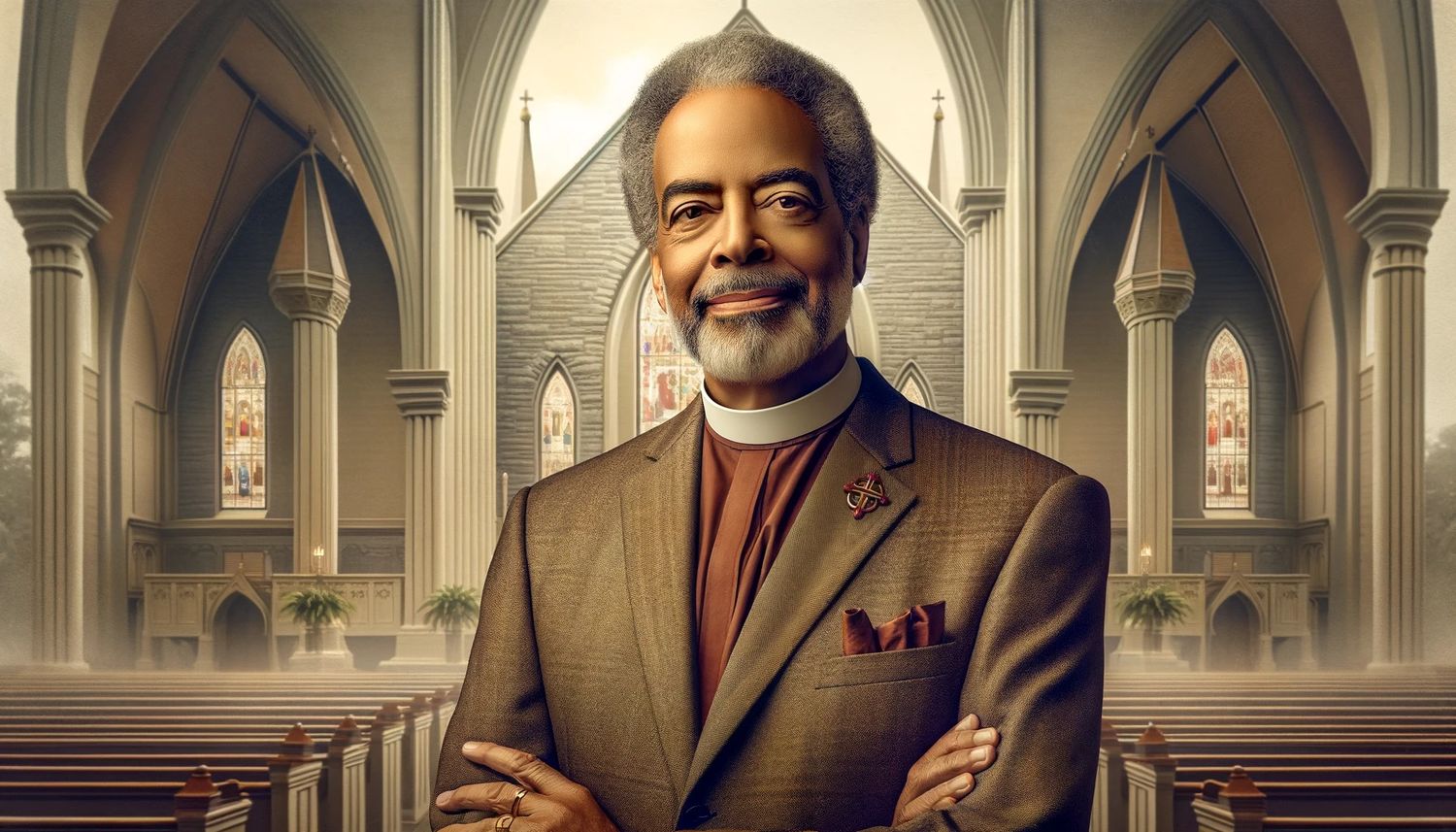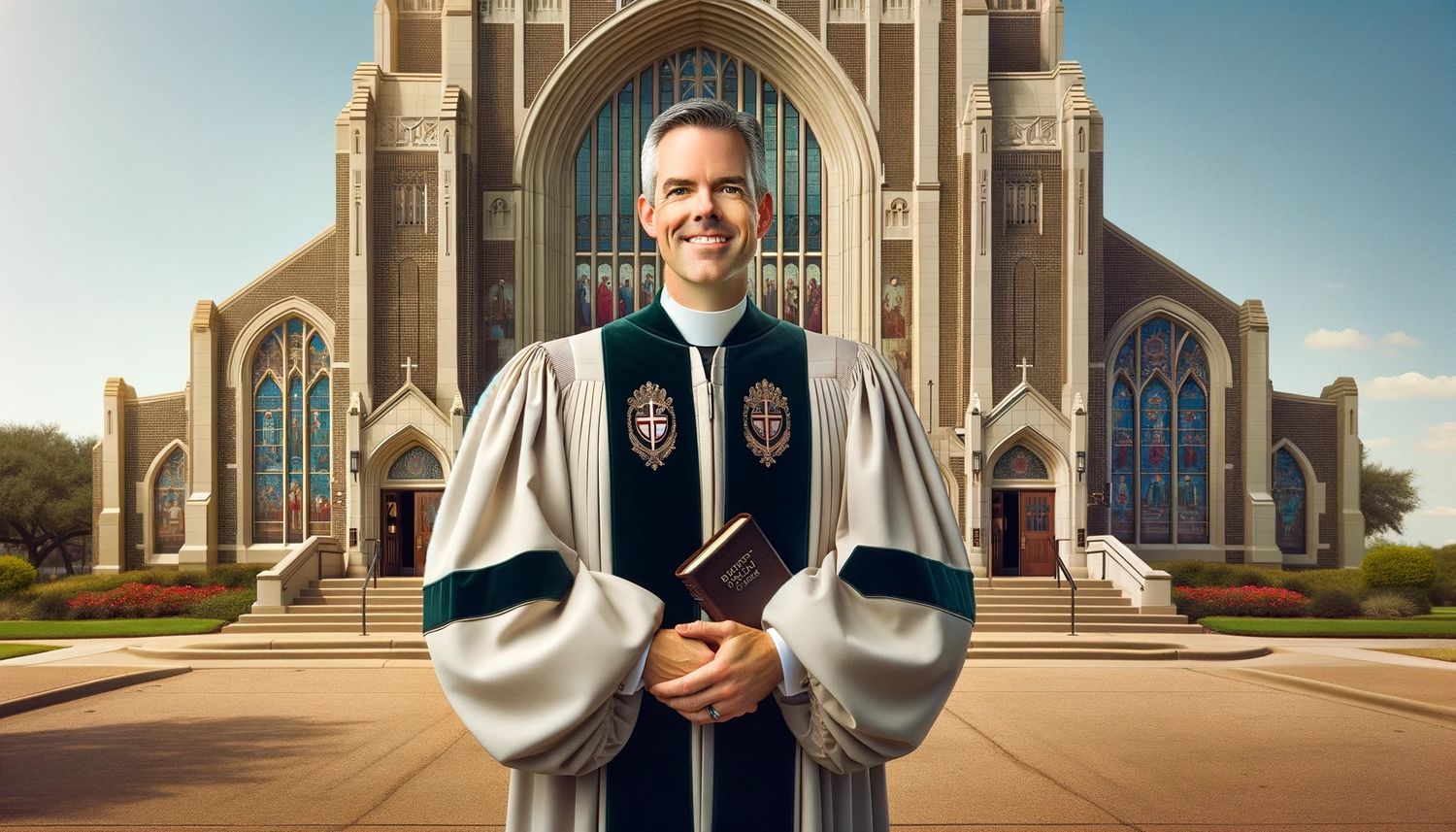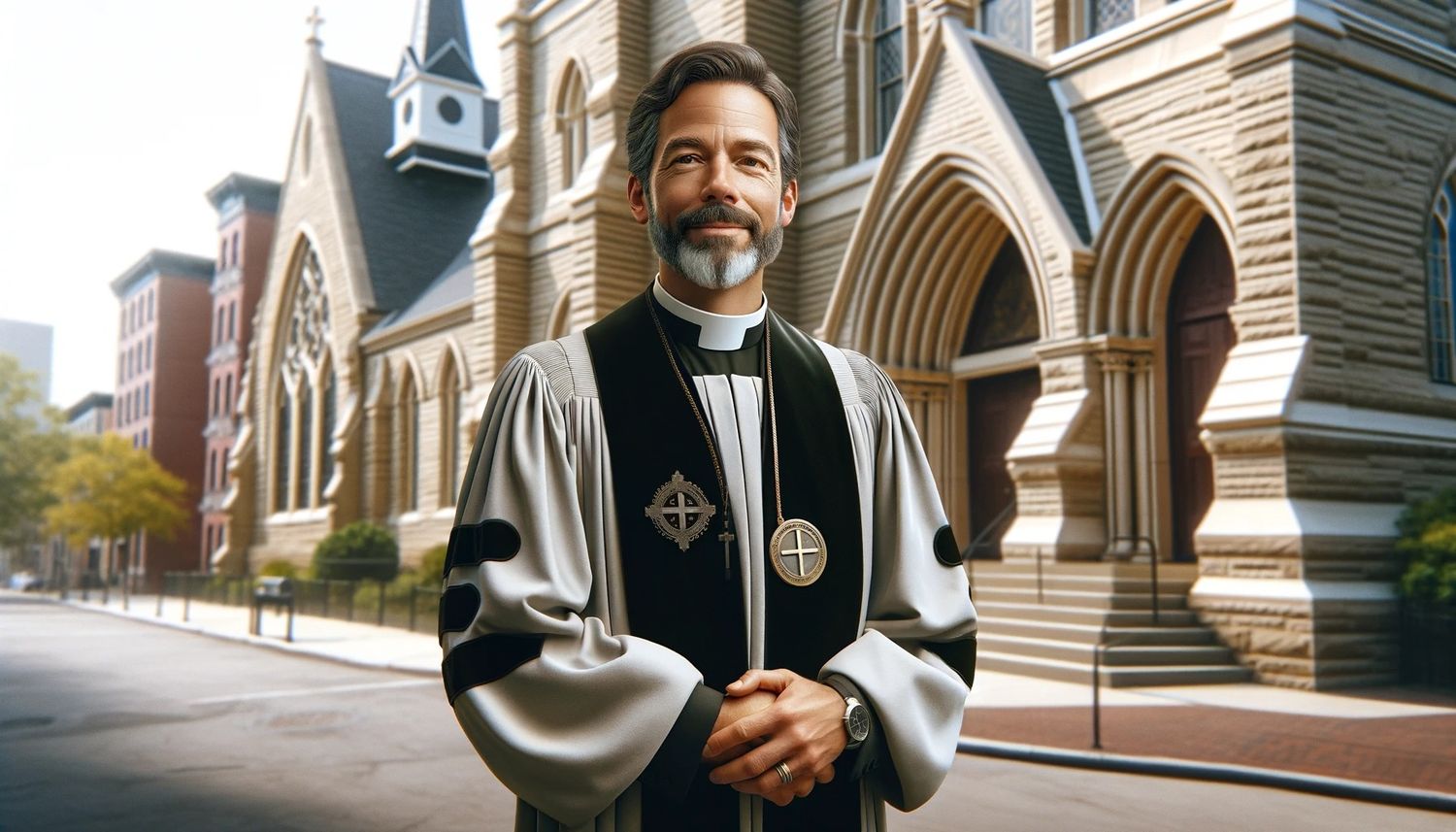Home>Theology and Spirituality>Who Runs The Baptist Church


Theology and Spirituality
Who Runs The Baptist Church
Published: February 20, 2024
Jason DeRose, Managing Editor at Christian.net, uses his expertise in religion and journalism to deepen understanding of faith's societal impacts. His editorial leadership, coupled with a strong academic background, enriches the platform’s diverse content, earning him recognition in both journalism and religious circles.
Discover the leadership structure and decision-making process in the Baptist Church. Explore the theology and spirituality behind its governance.
(Many of the links in this article redirect to a specific reviewed product. Your purchase of these products through affiliate links helps to generate commission for Christian.net, at no extra cost. Learn more)
Table of Contents
Introduction
The Baptist Church, a prominent denomination within Christianity, is known for its emphasis on believer's baptism and the autonomy of individual congregations. With a rich history dating back centuries, the Baptist Church has evolved into a diverse and influential religious community with a distinct organizational structure and leadership model. Understanding the inner workings of the Baptist Church, including its history, structure, leadership, decision-making processes, and the role of the congregation, provides valuable insight into the dynamics of this faith tradition. In this article, we will delve into the intricate fabric of the Baptist Church, shedding light on the individuals and mechanisms that drive its operations and shape its spiritual identity. Join us on this enlightening journey as we explore the inner workings of the Baptist Church and gain a deeper understanding of its unique place within the tapestry of Christianity.
Read more: Who Is The Leader Of Baptist Church
History of the Baptist Church
The history of the Baptist Church is a tapestry woven with threads of religious dissent, spiritual fervor, and unwavering commitment to individual conscience. Its roots can be traced back to the early 17th century in England, amidst a backdrop of religious and political upheaval. The Baptist movement emerged as a response to the prevailing practices of infant baptism and the hierarchical structure of the Church of England. Advocating for believer's baptism, whereby only adults who professed faith in Jesus Christ were baptized, the early Baptists sought to restore the New Testament model of the church and uphold the principle of religious freedom.
One of the most influential figures in the early history of the Baptist Church was John Smyth, an English separatist who is often regarded as one of the founders of the Baptist tradition. In 1609, Smyth led a group of believers in the establishment of the first Baptist congregation in Amsterdam, marking a pivotal moment in the movement's inception. From there, the Baptist faith spread across Europe and eventually made its way to the shores of North America, where it took root and flourished.
The Baptist Church in America played a significant role in shaping the religious landscape of the New World. With a steadfast commitment to religious liberty and the autonomy of local congregations, Baptists became champions of individual freedom and separation of church and state. Throughout the centuries, the Baptist Church has been characterized by its diversity, encompassing various theological perspectives and cultural expressions, from the conservative Southern Baptist Convention to the progressive American Baptist Churches USA.
The history of the Baptist Church is a testament to the enduring legacy of dissent and devotion, as well as the unwavering pursuit of spiritual truth and freedom. From its humble beginnings in England to its global presence today, the Baptist Church continues to embody the principles of faith, freedom, and autonomy that have defined its journey through the annals of time.
Structure of the Baptist Church
The structure of the Baptist Church is characterized by its emphasis on congregational autonomy and decentralized governance. Unlike hierarchical denominations with centralized authority, the Baptist Church operates on the principle of local church independence, wherein each congregation has the freedom to govern its affairs and make decisions without external interference. This distinctive feature reflects the Baptist commitment to the priesthood of all believers and the belief that each local assembly is directly accountable to God.
At the foundational level, the Baptist Church is organized into individual congregations, each serving as an autonomous body responsible for its spiritual and administrative matters. Within these congregations, members participate in decision-making processes, including the selection of church leaders, financial management, and the establishment of doctrinal beliefs and practices. This democratic approach to governance fosters a sense of ownership and involvement among the congregation, empowering them to shape the direction and identity of their church community.
While congregational autonomy is a defining characteristic of the Baptist Church, many congregations choose to associate with regional or national Baptist organizations for fellowship, support, and cooperative missions. These associations, often referred to as Baptist conventions or fellowships, provide a platform for churches to collaborate on various initiatives, such as missions, social outreach, and theological education, while respecting the autonomy of individual congregations.
Furthermore, some Baptist churches align themselves with larger denominational bodies, such as the Southern Baptist Convention or the American Baptist Churches USA, which offer resources, support, and a framework for cooperative endeavors while preserving the self-governing nature of local congregations.
The structure of the Baptist Church, therefore, reflects a delicate balance between autonomy and collaboration, allowing for diversity in practice and belief while fostering a sense of unity within the broader Baptist community. This decentralized model of governance underscores the Baptist commitment to individual freedom, congregational self-governance, and the recognition of the Holy Spirit's guidance in the life of each local church.
In essence, the structure of the Baptist Church embodies a dynamic interplay between independence and interdependence, creating a tapestry of diverse congregations united by a shared commitment to faith, freedom, and the proclamation of the gospel.
Leadership in the Baptist Church
Leadership in the Baptist Church is characterized by a commitment to servant leadership, the priesthood of all believers, and the recognition of spiritual gifts within the congregation. Unlike hierarchical denominations with ordained clergy holding formal authority, the Baptist tradition emphasizes the priesthood of all believers, affirming that every member of the church has a direct relationship with God and is called to serve according to their unique gifts and talents.
At the local level, the leadership of a Baptist congregation often includes ordained ministers, deacons, and lay leaders who work collaboratively to guide the spiritual life of the church. The role of the minister, commonly referred to as the pastor, is central to the pastoral care, preaching, and teaching within the congregation. While some Baptist churches may have multiple pastors or associate ministers, the emphasis remains on shared leadership and the active participation of the congregation in the ministry of the church.
Deacons play a vital role in the practical and spiritual aspects of church life, often overseeing matters such as benevolence, hospitality, and community outreach. Their service reflects the biblical model of servant leadership, as they work alongside the congregation to meet the needs of the community and support the ministry of the church.
In addition to ordained leaders, Baptist congregations recognize the importance of lay leadership, where members of the church are encouraged to use their spiritual gifts in various capacities, such as teaching, music ministry, and pastoral care. This inclusive approach to leadership fosters a sense of ownership and shared responsibility within the congregation, empowering individuals to contribute to the life and mission of the church.
While Baptist churches may differ in their specific leadership structures and practices, the underlying principle of shared leadership, servant-hearted service, and the recognition of the priesthood of all believers remains a common thread across the Baptist tradition. This approach to leadership reflects the belief that God equips and calls every member of the church to participate in the work of ministry, fostering a sense of community, collaboration, and mutual support within the congregation.
In essence, leadership in the Baptist Church is characterized by a spirit of humility, collaboration, and empowerment, where individuals are encouraged to use their gifts for the edification of the church and the advancement of God's kingdom. This model of leadership reflects the Baptist commitment to the priesthood of all believers and the belief in the active presence of God's Spirit within the life of the church.
Decision-making in the Baptist Church
Decision-making in the Baptist Church is deeply rooted in the principle of congregational autonomy and the priesthood of all believers. Unlike hierarchical structures where decisions are made by a centralized authority, the Baptist tradition places a strong emphasis on the participation of the entire congregation in matters of significance. This democratic approach to decision-making reflects the belief that every member has a direct relationship with God and is called to discern His will collectively.
In the context of the local church, major decisions, such as the selection of church leaders, approval of the annual budget, and adoption of doctrinal statements, are often made through a process of congregational meetings or assemblies. During these gatherings, members have the opportunity to express their views, ask questions, and vote on important matters, ensuring that the collective wisdom and discernment of the congregation guide the direction of the church.
The role of the pastor and other church leaders in decision-making is one of facilitation and spiritual guidance, rather than unilateral authority. While their input is valued, the ultimate decisions are made by the congregation as a whole, reflecting the Baptist commitment to shared responsibility and the belief that the Holy Spirit speaks through the entire body of believers.
Furthermore, the Baptist tradition upholds the practice of prayerful discernment, where the congregation seeks God's guidance and wisdom in making decisions. This often involves a period of prayer, reflection, and seeking consensus, as the church community endeavors to discern the leading of the Spirit in matters of significance.
In addition to local decision-making, Baptist churches may also participate in broader cooperative decision-making processes through regional or national Baptist associations. These associations provide a platform for churches to collaborate on missions, outreach initiatives, and doctrinal discussions, while respecting the autonomy of individual congregations.
In essence, decision-making in the Baptist Church is characterized by a commitment to the priesthood of all believers, congregational autonomy, and the discernment of God's will through collective prayer and reflection. This participatory approach to decision-making reflects the Baptist belief in the active presence of God's Spirit within the entire church body, guiding and directing its path as it seeks to fulfill its mission and purpose.
Read more: Who Founded Baptist Church
Role of the Congregation in the Baptist Church
The congregation plays a pivotal role in the Baptist Church, embodying the core principles of shared responsibility, spiritual discernment, and active participation in the life and mission of the church. Unlike denominations where decision-making and ministry are centralized within a select group of clergy or leaders, the Baptist tradition places a strong emphasis on the priesthood of all believers, affirming that every member has a vital role to play in the collective ministry of the church.
At the heart of the Baptist ethos is the belief in the spiritual giftedness of every individual within the congregation. This recognition of diverse spiritual gifts, talents, and abilities empowers members to contribute to the life of the church in meaningful ways. Whether through teaching, music ministry, pastoral care, or outreach initiatives, the congregation is encouraged to actively engage in the various facets of church ministry, fostering a sense of ownership and shared responsibility for the spiritual well-being of the community.
Furthermore, the congregation participates in the decision-making processes of the church, reflecting the Baptist commitment to congregational autonomy and the discernment of God's will through collective wisdom. Major decisions, such as the selection of church leaders, approval of the annual budget, and adoption of doctrinal statements, are made through congregational meetings or assemblies, where members have the opportunity to express their views, ask questions, and vote on important matters. This democratic approach to decision-making ensures that the collective discernment of the congregation guides the direction of the church, fostering a sense of unity and shared purpose.
In addition to active involvement in ministry and decision-making, the congregation also plays a vital role in nurturing a sense of community, fellowship, and mutual support within the church. Through acts of service, hospitality, and care for one another, the congregation embodies the spirit of Christian love and compassion, creating a welcoming and inclusive environment where individuals can grow in their faith and find support in times of need.
In essence, the role of the congregation in the Baptist Church is multifaceted, encompassing active participation in ministry, decision-making, and the cultivation of a nurturing and supportive community. This inclusive and participatory approach reflects the Baptist commitment to the priesthood of all believers and the belief that every member has a valuable contribution to make in the life and mission of the church.
Conclusion
In conclusion, the Baptist Church stands as a testament to the enduring principles of faith, freedom, and community. With its rich history rooted in the pursuit of religious liberty and the restoration of New Testament ideals, the Baptist tradition has evolved into a diverse and influential faith community characterized by its distinctive organizational structure and leadership model.
The history of the Baptist Church reflects a legacy of dissent, devotion, and unwavering commitment to individual conscience. From its humble beginnings in 17th century England to its global presence today, the Baptist movement has championed the principles of believer's baptism, congregational autonomy, and the priesthood of all believers, shaping its identity as a vibrant and diverse religious tradition.
The structure of the Baptist Church, with its emphasis on congregational autonomy and decentralized governance, embodies a delicate balance between independence and collaboration. This unique model of governance fosters diversity in practice and belief while nurturing a sense of unity within the broader Baptist community, reflecting the commitment to individual freedom and the recognition of the Holy Spirit's guidance in the life of each local church.
Leadership in the Baptist Church is characterized by a spirit of humility, collaboration, and empowerment, where individuals are encouraged to use their gifts for the edification of the church and the advancement of God's kingdom. This model of leadership reflects the Baptist commitment to the priesthood of all believers and the belief in the active presence of God's Spirit within the life of the church.
Decision-making in the Baptist Church is deeply rooted in the principle of congregational autonomy and the priesthood of all believers, reflecting the belief that every member has a direct relationship with God and is called to discern His will collectively. This participatory approach to decision-making underscores the Baptist commitment to shared responsibility and the belief that the Holy Spirit speaks through the entire body of believers.
The role of the congregation in the Baptist Church is multifaceted, encompassing active participation in ministry, decision-making, and the cultivation of a nurturing and supportive community. This inclusive and participatory approach reflects the Baptist commitment to the priesthood of all believers and the belief that every member has a valuable contribution to make in the life and mission of the church.
In essence, the Baptist Church stands as a vibrant tapestry of faith, freedom, and community, embodying the enduring principles that have shaped its journey through history. As it continues to evolve and adapt to the challenges of the modern world, the Baptist tradition remains anchored in its foundational values, serving as a beacon of hope, love, and spiritual renewal for generations to come.














